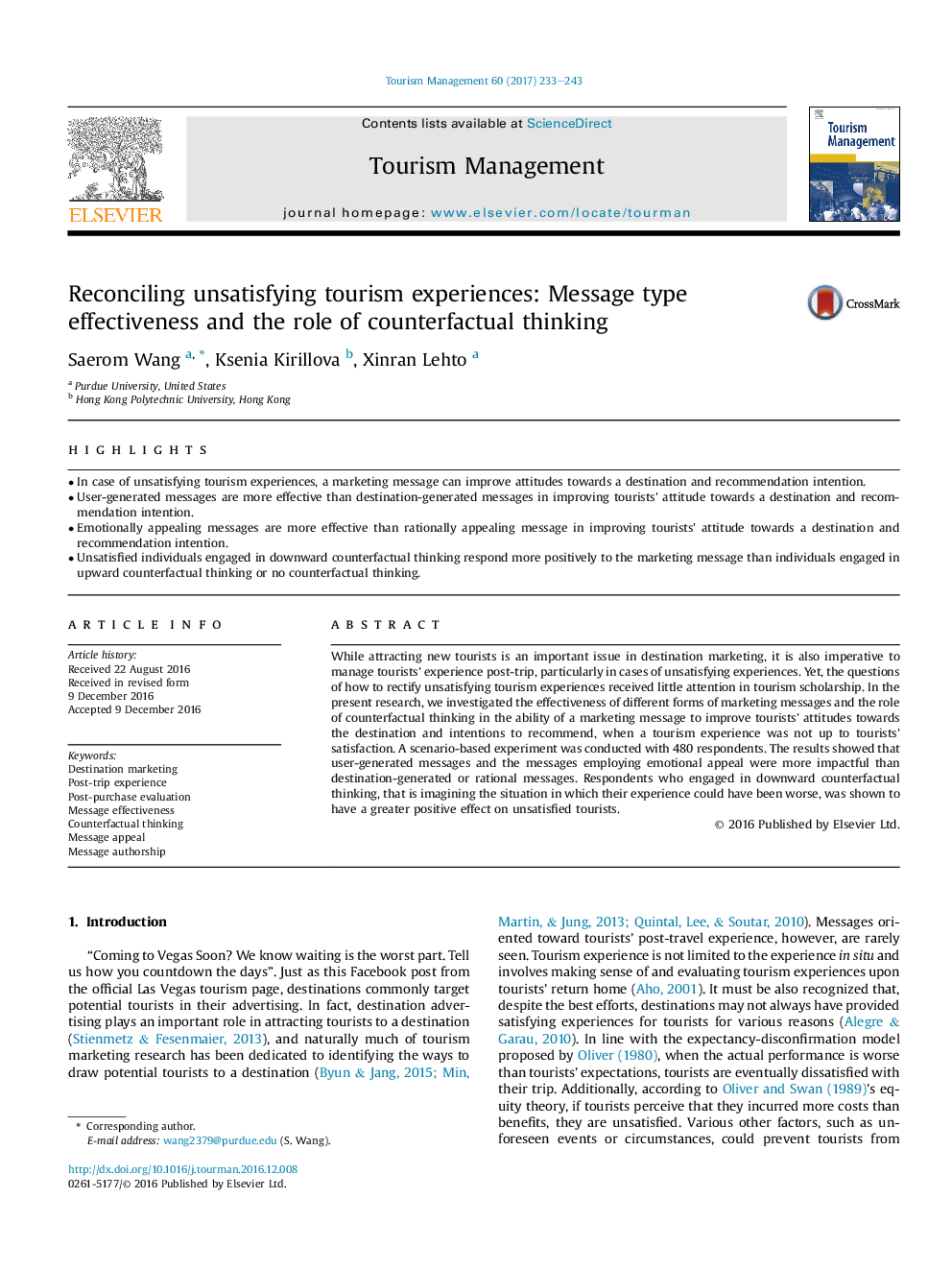| Article ID | Journal | Published Year | Pages | File Type |
|---|---|---|---|---|
| 5108672 | Tourism Management | 2017 | 11 Pages |
Abstract
While attracting new tourists is an important issue in destination marketing, it is also imperative to manage tourists' experience post-trip, particularly in cases of unsatisfying experiences. Yet, the questions of how to rectify unsatisfying tourism experiences received little attention in tourism scholarship. In the present research, we investigated the effectiveness of different forms of marketing messages and the role of counterfactual thinking in the ability of a marketing message to improve tourists' attitudes towards the destination and intentions to recommend, when a tourism experience was not up to tourists' satisfaction. A scenario-based experiment was conducted with 480 respondents. The results showed that user-generated messages and the messages employing emotional appeal were more impactful than destination-generated or rational messages. Respondents who engaged in downward counterfactual thinking, that is imagining the situation in which their experience could have been worse, was shown to have a greater positive effect on unsatisfied tourists.
Related Topics
Social Sciences and Humanities
Business, Management and Accounting
Strategy and Management
Authors
Saerom Wang, Ksenia Kirillova, Xinran Lehto,
